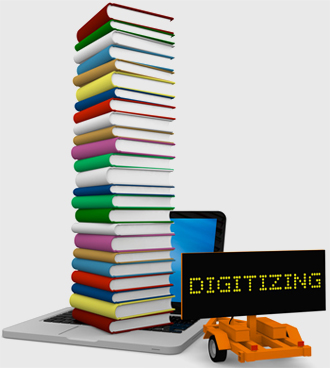Manufacturing and distribution companies can increase efficiency and productivity through document conversion. Studies show that the manufacturing sector is showing great interest in digitization in recent years. Today, a vast majority of companies have acknowledged the need for going digital with their documents and consider it a key driver in profitable business growth. With digital capabilities, manufacturing companies can execute quick data exchange, store data centrally, generate valuable insights from big data, enrich processes with digital knowledge, and facilitate communication and collaboration through digital channels.
A Capgemini Consulting study analyzed the effects of digital transformation on the manufacturing sector. Let’s look at the main points made by this study.
Creates Business Opportunities
According to the survey, 75% of the companies claim that digital conversion of documents will help them leverage their competitive position. Digitally transformed operations improve the internal efficiency of the system and the bottom-line, ensuring top line performance. Increased productivity and performance are direct measures for
- Competitive advantage
- Improved internal efficiency
- Improved products and services and
- Improved customer relationships
Transforms Business Model
Digitization offers manufacturing companies great opportunities to transform into a holistic service provider. Companies of any size can extend their value proposition across new market regions and exploit global growth opportunities using digital technologies. Going digital with their business model would offer many benefits:
- Increase the added value of products and services
- Help launching new businesses
- Reach more customers than with a traditional method
- Helps customization of products and services
- Allows active transition of physical products and services to digital
Boosting Operational Performance
Digitization has helped a majority of boost operational performance. This has been accomplished by integrating technologies that enable employees to work and to connect with any location, which is a major advantage for globally operating and decentralized companies. This in turn boosts the overall performance of the firm as:
- Employees can perform their work duties from any location
- Employees can collaborate with other employees through digital channels
- Improved communication with top levels of management
- Employees can actively share their knowledge through collaborative community platforms
Technologies such as mobile technologies, instagram messaging, and embedded devices are greatly used for improving operational processes. Document conversion helps in complete automation of core processes, allows monitoring of operations in real time, and improves operations via data analytics.
Improved Customer Experience
Business analytics helps companies to gain completely new insights into their customers and the global markets. Data for conducting analysis is collected by gathering information regarding markets and customers through the web, social media, mobile services, and through devices embedded in products. This helps in effective target marketing and in increased customer conversions.
Around 67% of the respondents in the Capgemini Consulting survey believe that their competitive position will suffer if they do not implement electronic conversion. From this, it is obvious that digital transformation can really transform manufacturing processes and help companies in this sector to reap the benefits of the current industrial revolution.



